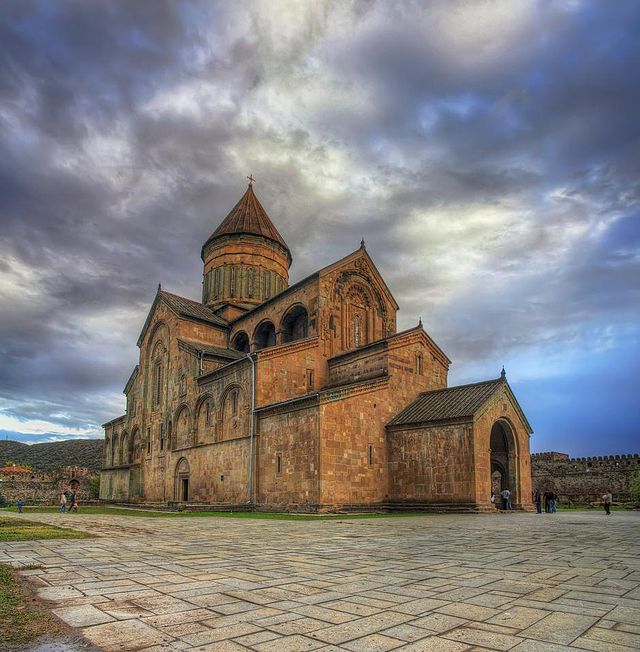
Bennett Briggs
Bordered by Russia, Turkey, Armenia, Azerbaijan, and the Black Sea, the country of Georgia is quite literally at the crossroads of Western Asia and Eastern Europe.
With a population of about 4.5 million people, 3.8 million, or roughly 84% of the population, belong to the Georgian Orthodox Church. Muslims are the second largest denomination with 10%, and members of the Armenian Apostolic Church (AAC) with 4%. Roman Catholics, Kurdish Yezidis, Greek Orthodox, and Jews together make up less than 5% of the population and “Nontraditional” religious such as Baptists, Jehovah’s Witnesses, Pentecostals, and Hare Krishnas together constitute less than 1% of the population.
Although the constitution of Georgia specifies that Church and State are separate and that freedom of religion is available to all, the Georgian Orthodox Church (GOC) has special status within the country and governement. The GOC is officially recognized in the Constitution of Georgia and the Concordat of 2002. The concordant (which the government does not have with any other religious group) grants rights to the GOC, including legal immunity for the GOC patriarch, rights to staff the military chaplaincy, exemption of GOC clergy from military service, and a consultative role in government. Additionally, the GOC is the only religious group with a line item in the government budget, receiving 22.8 million Lari ($13.75 million) each year.
The criminal code of Georgia prohibits religious persecution, as well as interference with worship services or the establishment of a religious organization. Violations are punishable by a fine, imprisonment, or both.
By law, religious education may take place only after school hours and cannot be controlled by the school or teachers. Only GOC lay theologians, rather than priests, are allowed to lead such activities.